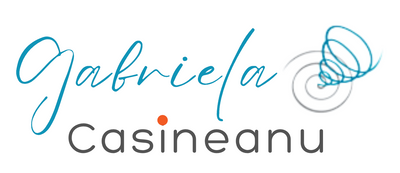Why I Write: A Personal Story of Finding Purpose and My Mission
The discovery
In 2006, two months after shifting my career from engineering to coaching, I stumbled upon the MBTI® assessment during a training session. While my career shift was triggered by an intuitive insight, the MBTI® test results revealed if I had made the right choice. Before taking this test, my logical mind kept going back and forth: Did I make the right decision quitting a well-respected profession?
It turned out … YES! During the break, I gently approached the training leader and mentioned my career change and MBTI® test results. When he confirmed that my MBTI® type resonated with my new direction … my uncertainty suddenly disappeared.
What a relief!
Increased awareness
My revelations didn’t stop there. Diving deeper into this topic that I found fascinating, it was like a fog started to evaporate. I could see past situations in a different light. The perpetual communication struggles with my sister, for example, made more sense now—when I became aware that we’re on the opposite sides of the introversion-extroversion spectrum (so we have complementary traits and motivational factors).
In the following years, I coached many professionals looking for jobs, career advancement, or building their businesses. And I paid particular attention to how the complementary innate traits of introversion or extroversion played a role in their struggles, successes, and what strategies they used. This gave me even more insights and the firm belief that introverts and extroverts need different strategies to achieve their goals. They’re both capable and possess valuable traits (which I consider strengths), but the strategies they use need to align more with their strengths and talents so they don’t lose time and energy with strategies that don’t work well with their personality traits.
As someone who has navigated several professions and worked in different fields, I also looked at how my introvert strengths played a role in navigating the challenges of my professional life, and the strategies I’ve developed throughout this journey (as an introvert).
While I could focus on more aspects of personality, I became more interested in introversion-extraversion when an interesting picture started to emerge in my mind: their innate traits are complementary! And the strategies that work best for each are different.
I wanted to see more people get AHA moments like mine when they discover how introversion-extraversion plays a significant role in their life and what they can do differently to become happier and more successful (however they define success).
So, I started including in my coaching and training how the participant’s personality traits (especially introversion-extraversion) can affect their results—not just their skills and experience. I also shared strategies tailored to their respective side of the spectrum and their objectives.
It was so rewarding noticing their AHA moments when, like me, they discovered how this increased awareness sheds new light on their personal and professional life and how they can leverage their strengths more strategically!
And for those who were interested in discovering which side of the introversion-extraversion spectrum they fall on (and learn more about it), I also offered to help with MBTI® assessments.
A new insight
At the end of a workshop I did with 40 participants—on how their mindset affects their careers—I got another insight. A heads-up call, actually (which I ignored soon after).
During that workshop, I asked them to raise their hand if they were introverts and look around. Almost half had their hands up. At the end, a young lady approached me, sharing that she hadn’t realized—until she looked around—that there were other people like her in the world. She thought she was the only one!
She also thanked me for sharing that I too am an introvert, and that I had worked on myself to a point that I could design and lead such interactive and experiential workshops. She felt relieved, realizing she too could overcome her challenges.
Listening to her confession gave me goosebumps and the thought: “How many other people are there in the world who think like her? That there are no others like them, and they have to live their whole lives with—what they consider—their limitations?”
Although I made a mental note to focus even more on helping introverts become aware of their valuable strengths and the strategies they can rely on (instead of forcing themselves to be like extroverts) … that didn’t happen since I was not ready yet to push through the belief that I shouldn’t have such a narrow focus.
Soon, life brought me an even tougher heads-up call
By that time, I was doing daily workshops (besides talking to clients), which is too much for an introvert. I got to a point where I was sleeping 12 hours every night (even more on weekends), but that was not enough to recharge my batteries. My health quickly deteriorated, my voice giving up first: I couldn’t talk for four months. My body was screaming for help and took action to stop me by blocking what was draining my energy most: talking!
Isn’t it smart?
While I still wanted to help others, I didn’t have the energy to even stand or walk. One day, relying on my coaching skills, I asked myself: What would I do for the rest of my life if I wouldn't be able to talk anymore?
The answer came with my next thought: Write an introvert guide for job search! It made perfect sense; I had accumulated significant expertise in this area over the years.
Although my focus and concentration were also affected, I could at least sit. So, I started writing: 5 minutes the first day, a bit more every day, until … ten months later … I published what came to be the award-winning and best-selling book Introverts: Leverage Your Strengths for an Effective Job Search. I started with a book proposal first to approach publishers. Although that approach was not successful, the book proposal proved to be a great exercise. It forced me to look at the competition (other books), which helped me discover more about how my topic was presented by others, what was missing in their approach, and how to make my book more relevant for its readers.
That book idea wasn’t the last life push in this direction. Once I learned how to write and self-publish books, I brought the introversion topic to other books that followed.
Quiet Lessons of the Introvert’s Soul, in particular, which has interviews with eleven introverts about their challenges, allowed me to point out the introvert strengths that played a big role in overcoming their challenges. I grouped them in a downloadable list, which made readers reach out to me, revealing their AHA moments that increased awareness brought them.
How many life signs should I have waited for to push through that belief?
The WHY behind the Introverts Academy
During the COVID-19 pandemic lockdown, I gave myself a break to do … nothing. The imposed social isolation didn’t bother me (an introvert). However, being a very sensitive person, all the negativity and daily bad news felt overwhelming. When I gave myself a break from all that, another energizing thought hit me: to start the Introverts Academy!
Based on all the work I’ve done previously and the impact I’ve noticed on those who got in touch with my work, it totally made sense. Looking at what’s already out there specific to introverts, I noticed another trend. They were focusing on specific aspects, not the whole: coaching or advice for introverts on leadership, entrepreneurship, job search/career development, relationships, or for teens …
Having accumulated more than 15 years of coaching expertise related to both personal and professional life—and noticing how often they intertwine and affect each other–I wanted Introverts Academy to focus on a more holistic approach: consider the introverted person as a whole and address whatever needs more attention at a specific moment in their journey. That also includes the body-mind-spirit connection, often neglected in the Western world.
That’s why the Introverts Academy newsletter includes information related to six topics:
- Thriving on Your Own
- Job Search & Career Advice
- Relationships & Communication
- Business for Introverted Entrepreneurs
- Mind-Body-Spirit Connection
- Hobbies anyone?
Projecting that image into the future, I envisioned Introverts Academy to be the catalyst for building a better world by tapping into the complementary and valuable traits of both introverts and extroverts.
With such a big and meaningful picture in mind (which resonates with my introverted nature)—and the realization that introverts are a large percentage of the population—I finally pushed through that belief and started Introverts Academy.
A report based on 58,000 MBTI® test results shows that in Canada, 48% are introverts, and one-third to one-half of the U.S. population are considered introverts.
Since I published my first book and conduct MBTI® Assessments, I have also noticed that there are people who are not sure where they are on the introversion-extraversion spectrum. Or their assumption is wrong, based on behaviours they build over time that might hinder their natural preference. One more reason to continue in this direction.

While occasionally my work doesn’t seem directly related to my vision for Introverts Academy, the complementary strengths of introverts and extroverts and strategies that suit each always run in the back of my mind, along with the multidisciplinary and holistic approach I fully embrace in everything I do (including my life).
Now you know why I write and I’m so passionate about to build a better world by tapping into introverts' power.
My books and Introverts Academy being part of this mission)!
Once people understand which side of the spectrum they are on and what strategies align more with their personality, things fall into place more naturally, and it makes more sense to leverage their innate strengths more effectively.
And, there's much more work to do - at interpersonal, organizational, and systemic levels - that are also part of Introverts Academy's WHY.
Now back to you
• Did you find your purpose? Your mission?
• What else would you like to know about me or learn from Introverts Academy?
Gabriela Casineanu, MSc, MBA, MBTI
Award-Winning Author • Founder, Introverts Academy







